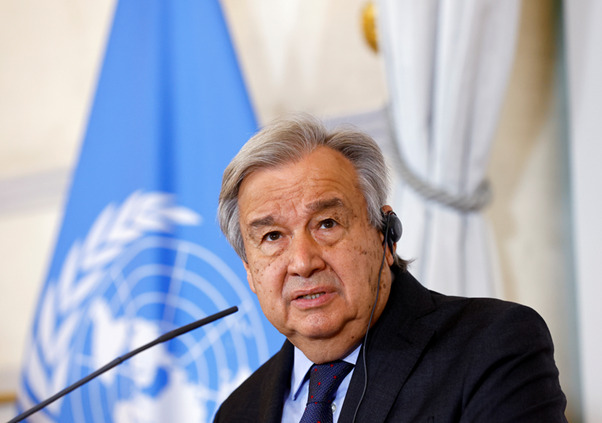António Guterres calls for stronger multipolarity at SCO summit
- Obyektiv Media
- Sep 2, 2025
- 2 min read

UN Secretary-General António Guterres called for stronger multipolarity and peace in Gaza, Ukraine and beyond in his speech at the Shanghai Cooperation Organisation summit in Tianjin, China on Monday.
The 10-nation Eurasian bloc is the world’s largest regional organisation by population and geography, the secretary-general said. Guterres told leaders that “we are moving towards a multipolar world” and that this is both a reality and an opportunity. He said emerging economies are reshaping trade, diplomacy and development, but at the same time, injustice and division are growing. The secretary-general stressed the need for principled leadership to strengthen multipolarity and uphold the rule of law. He added: “The Shanghai Cooperation Organisation is uniquely positioned to help build a more peaceful, inclusive and sustainable future.”
The UN secretary-general outlined four priority areas, starting with peace and security. Referring to the war in Ukraine, he said: “The time has come for a ceasefire that leads to a just, comprehensive and lasting peace in accordance with the UN Charter, international law and Security Council resolutions.” He also called for the protection of civilians, the promotion of dialogue and peacebuilding in Sudan, Myanmar, Africa, Afghanistan and beyond. “Your leadership in diplomacy and de-escalation, as well as your efforts to counter terrorism and transnational threats, are critical,” the Secretary-General told the leaders.
The Secretary-General called for reforms to the global financial architecture to ensure equitable representation of developing countries: “We are no longer in 1945, and our institutions must reflect today’s realities.”
Guterres also addressed the climate crisis: “We are approaching a tipping point and we need to significantly reduce emissions. The G20 countries, which account for 80% of global emissions, must lead the way.” He called on all governments to submit new climate action plans for the COP30 climate conference in Brazil this November. The Secretary-General stressed: “We also need a clear path to reach $1.3 trillion in climate finance by 2030. Developed countries must deliver on their commitments. We need progress on adaptation.” He called for a doubling of adaptation funding, expansion of early warning systems, resilient infrastructure, and a phase-out of fossil fuels, as well as an acceleration of the transition to renewable energy. Turning to technology cooperation, the Secretary-General noted that the final area of action is digital cooperation, as new technologies bring both opportunities and risks. He said the UN General Assembly had established two mechanisms – the Independent Scientific Board and the Global Dialogue on the Governance of Artificial Intelligence (AI) – to create conditions for all countries and prevent fragmentation. “These mechanisms mark a step forward in global cooperation on AI, leveraging the unique convening power of the UN,” he stressed. “Putting people first,” the Secretary-General said, adding that as the UN marks its 80th anniversary, countries should strengthen international cooperation in the 21st century. In this regard, he highlighted China’s “Global Governance Agenda,” which is based on multipolarity and emphasizes the importance of upholding the UN, the international system, and an international order based on international law.



Comments